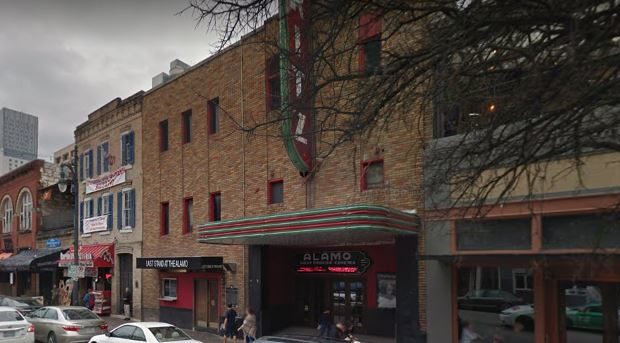Live music proponents revive ‘agent of change,’ with eye toward fall
Wednesday, January 31, 2018 by
Chad Swiatecki After it lay dormant since July, city leaders and music industry professionals are restarting the process that – it is hoped – will protect live music venues and nearby residential buildings from clashing over noise and general quality-of-life issues.
Known as “agent of change,” the concept would place the responsibility on the new business or development moving into an area to mitigate or lessen the impact of sound on guests and residents in a given area.
That means, in theory, that new hotels and condominiums constructed near entertainment districts would need to acknowledge the presence of nightlife nearby and take steps such as soundproofing rooms and homes to ensure guests and residents aren’t unreasonably disturbed. The opposite would hold true as well, with entertainment businesses moving into residential areas, thanks to increasing downtown rents, needing to make sure loud music or other activity doesn’t disturb longtime residents.
The issue had a large place in city government circles for the first half of 2017 but was shelved when top city managers and others called the proposed policy “toothless” and unlikely to provide suitable protection for music venues or other businesses caught up in noise disputes with neighbors. With the hiring of Erica Shamaly as the new director of the city’s Music and Entertainment Division in July other matters took on more importance, but she said the time has come to bring venue leaders, neighborhood associations, and the hotel and real estate industry together to create a policy that does what representatives from those three groups say is necessary to find harmony among them.
“This is one of my top priorities, and we have to get buy-in from everyone involved, and that includes developers and the hotels,” she said. “Before we didn’t really have that buy-in, and it’s the city’s job to step up and make this easier to swallow. I want the result of this to be a positive relationship all around so people can see what is possible by working together.”
Rather than assembling a working group to meet and decide on the policy over a matter of months, Shamaly’s staff and Rebecca Reynolds, president of Music Venues Alliance Austin, will start working next week on assembling the “must have” components of a policy and getting feedback from the three stakeholder groups on what they want added or changed. Both said they are pushing to get the policy in place by the fall at the latest, but it is still unknown whether it will be a resolution on its own or included as part of the CodeNEXT process.
Not included in the agent of change process this go-around is a proposal city leaders were pushing last year to create entertainment licenses for music venues. That move could have shortened the permitting and approval process from its current structure, but many club owners said the licenses would make it too easy for the city to penalize businesses for accusations of noise violations.
Reynolds said the guidelines used by cities to mitigate homes built along aircraft flight paths and the standards set by the World Health Organization for acceptable indoor decibel levels will help her and others to write language that the various groups agree on.
“The neighborhoods’ frustration comes from how the city’s sound ordinance is enforced, but everyone appears to agree on the agent of change, and what I’ve heard from the hotels is that for them to self-impose building standards they want certainty on sound enforcement,” she said. “There’s plenty of shared values between the groups, and now that Erica’s office and the Economic Development Department are aligned, the city can own that it has a role in managing sound disputes.”
The agent of change issue was one of many topics discussed at length Monday at a combined meeting of Austin’s Arts and Music commissions.
Music Commissioner Rick Carney said he’d prefer to see the policy made a part of CodeNEXT so that it can play a role in how the city grows going forward. He said the likelihood of venues increasingly moving into residential areas makes it important to have a clear policy setting expectations for newcomers to an area.
“This is encouraging news for what we’re seeing in my district, and even though there’s still lots of work to be done, for once it seems like everyone is on the same page,” he said. “Another issue with that is our sound ordinance and bad or inconsistent measurement situations, but the biggest thing is making sure there’s consistent enforcement.”
The Austin Monitor’s work is made possible by donations from the community. Though our reporting covers donors from time to time, we are careful to keep business and editorial efforts separate while maintaining transparency. A complete list of donors is available here, and our code of ethics is explained here.
You're a community leader
And we’re honored you look to us for serious, in-depth news. You know a strong community needs local and dedicated watchdog reporting. We’re here for you and that won’t change. Now will you take the powerful next step and support our nonprofit news organization?









